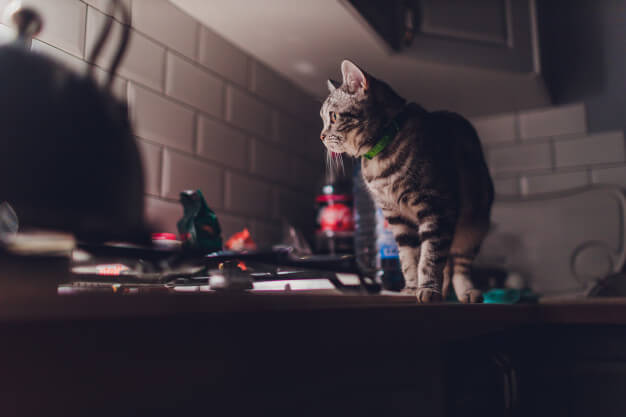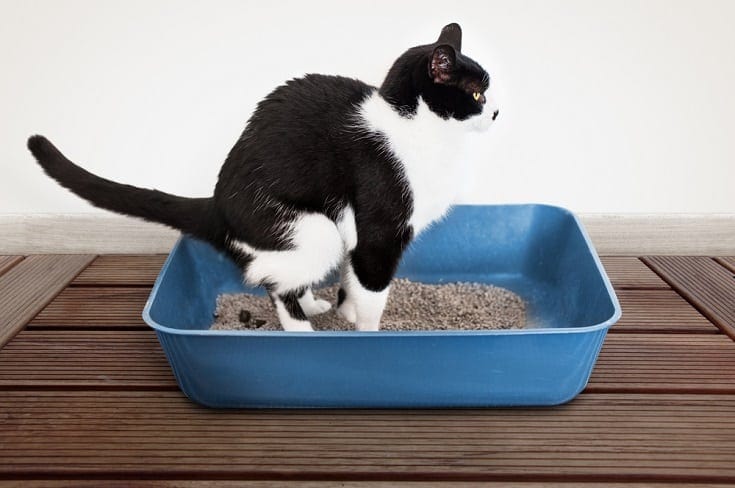Your older cat may be biting your kitten due to territorial behavior or aggression. This behavior should be addressed to prevent harm to the kitten and maintain a peaceful household.
Cats are individuals with distinct personalities and quirks. Introducing a new kitten into a household with an older cat can create tension that could escalate into aggressive behavior that includes biting. This behavior could indicate territorial aggression, anxiety, or physical and emotional discomfort. Some older cats may feel threatened or jealous of the newcomer and resort to biting. In this article, we will discuss possible reasons for this behavior and how to address it.
:strip_icc()/kitten-leave-adult-cat-alone-554826-hero-ad2d387f4649484782f0bfaa803683f1.jpg)
Credit: www.thesprucepets.com
Understanding Cat Behavior
Cats can be unpredictable creatures, and biting is one of their natural behaviors. The reasons behind their biting can vary from aggression to territorial behavior. Aggression can occur due to various reasons, including fear or discomfort. Meanwhile, territorial behavior can result from the need to protect their space or resources.
If an older cat keeps biting a kitten, it may be due to the latter’s invasion of the former’s territory. Understanding these natural instincts of cats is crucial for pet owners to ensure their cats live harmoniously together. Appropriate measures, such as separating cats when needed and introducing them slowly, can help prevent unnecessary conflicts and ensure a peaceful home.
Introduction To Multi-Cat Households
Living with multiple cats comes with its own set of challenges, and one of them is introducing a new cat to the household. Factors like cat hierarchy and personalities must be taken into consideration to avoid conflicts. Understanding the hierarchy can help determine which cat is dominant and needs more attention.
Different personalities of cats also affect how they interact with each other. To avoid aggression or fights, introducing them slowly is crucial. Gradually allow them to smell and see each other before making physical contact. With these precautionary measures, creating a harmonious multi-cat household can be achieved.
Cat Biting Other Cats – What Does It Mean & How To Stop It
Common Reasons For Biting In Older Cats Towards Kittens
It can be concerning to see your older cat biting your kitten. There are several common reasons why this happens. One reason could be a lack of socialization with other cats. Another reason could be resource guarding, where the older cat feels threatened by the presence of the kitten near their food or toys.
Territory defense is another possibility, where the older cat feels the need to protect their space. Fear and anxiety can also trigger biting behavior. However, it’s worth noting that some older cats may also play rough with kittens due to their playful nature.
It’s important to monitor their behavior and intervene if necessary to ensure the safety of both cats.
Signs Of Aggression In Cats
Physical cues, such as raised fur and growling, are common signs of aggression in cats. Vocalization and facial expressions, like hissing and narrowed eyes, can also indicate aggressive behavior. Body language, such as a crouched stance and flattened ears, is another indicator of aggressive tendencies.
Physical signs of aggression can include biting and scratching. However, it’s important to note that physical play between cats can sometimes be mistaken for aggression. Signs of acceptance, such as grooming and rubbing against each other, can help differentiate between rough play and true aggression.
Understanding these signs can help prevent unnecessary conflicts between cats and ensure a harmonious household.
Dealing With Cat Aggression
Cat aggression is a common issue, especially when introducing a new kitten to an older cat. Behavioral modifications, such as providing separate sleeping areas, can help alleviate tension. In some cases, medication may also be necessary. However, it is important to work with a professional and implement safety precautions.
Consulting with a veterinarian is crucial to ensure that the cat biting behavior is not due to an underlying medical condition. With patience and consistency, most cases of cat aggression can be successfully managed.
Frequently Asked Questions Of Why Does My Older Cat Keep Biting My Kitten
Why Is My Older Cat Attacking My Kitten?
It is possible that your older cat may feel threatened or territorial over their space or resources such as their food or sleeping area. It is also possible that your older cat is simply establishing their dominance over the kitten.
Observe their interactions, and try to find ways to separate them if necessary.
How Can I Stop My Cat From Biting My Kitten?
If your older cat is biting the kitten aggressively, separate them immediately and give each of them their own space and resources. Make sure your older cat has enough stimulation and enrichment, and try introducing them to the kitten in a controlled and supervised environment.
Positive reinforcement and treats can also help encourage positive interactions.
Can Cats Play Rough With Each Other?
Yes, cats are natural predators and may play rough with each other, but it is important to distinguish between playful behavior and aggressive behavior. Playful behavior includes chasing, pouncing, and grooming, while aggressive behavior includes biting, hissing, and growling. It is important to monitor their behavior and intervene if the play becomes too rough.
Are There Any Medical Reasons Why My Cat Is Aggressive Towards My Kitten?
If your older cat’s behavior towards the kitten is sudden or unusual, it may be due to a medical condition. Pain or discomfort can cause aggression in cats, or they may be experiencing age-related changes such as cognitive decline. Take your older cat to the vet for a check-up to rule out any underlying medical issues.
Conclusion
Finally, understanding your cat’s behavior is crucial in maintaining a peaceful home environment. While it can be frustrating to witness your older cat attacking your new kitten, it is merely a natural instinct. To minimize aggressive behavior, provide separate spaces for both cats, especially during meal times and litter box usage.
Gradually introduce the two and monitor their interactions until they are comfortable with each other. Always offer plenty of playtime and attention to both cats to reduce territorial behavior. Remember, it takes patience and understanding to ensure a harmonious environment where all pets can thrive.
With these tips, you can help your cats build a positive relationship and live happily together.
{ “@context”: “https://schema.org”, “@type”: “FAQPage”, “mainEntity”: [ { “@type”: “Question”, “name”: “Why is my older cat attacking my kitten?”, “acceptedAnswer”: { “@type”: “Answer”, “text”: “It is possible that your older cat may feel threatened or territorial over their space or resources such as their food or sleeping area. It is also possible that your older cat is simply establishing their dominance over the kitten. Observe their interactions, and try to find ways to separate them if necessary.” } } , { “@type”: “Question”, “name”: “How can I stop my cat from biting my kitten?”, “acceptedAnswer”: { “@type”: “Answer”, “text”: “If your older cat is biting the kitten aggressively, separate them immediately and give each of them their own space and resources. Make sure your older cat has enough stimulation and enrichment, and try introducing them to the kitten in a controlled and supervised environment. Positive reinforcement and treats can also help encourage positive interactions.” } } , { “@type”: “Question”, “name”: “Can cats play rough with each other?”, “acceptedAnswer”: { “@type”: “Answer”, “text”: “Yes, cats are natural predators and may play rough with each other, but it is important to distinguish between playful behavior and aggressive behavior. Playful behavior includes chasing, pouncing, and grooming, while aggressive behavior includes biting, hissing, and growling. It is important to monitor their behavior and intervene if the play becomes too rough.” } } , { “@type”: “Question”, “name”: “Are there any medical reasons why my cat is aggressive towards my kitten?”, “acceptedAnswer”: { “@type”: “Answer”, “text”: “If your older cat’s behavior towards the kitten is sudden or unusual, it may be due to a medical condition. Pain or discomfort can cause aggression in cats, or they may be experiencing age-related changes such as cognitive decline. Take your older cat to the vet for a check-up to rule out any underlying medical issues.” } } ] }


